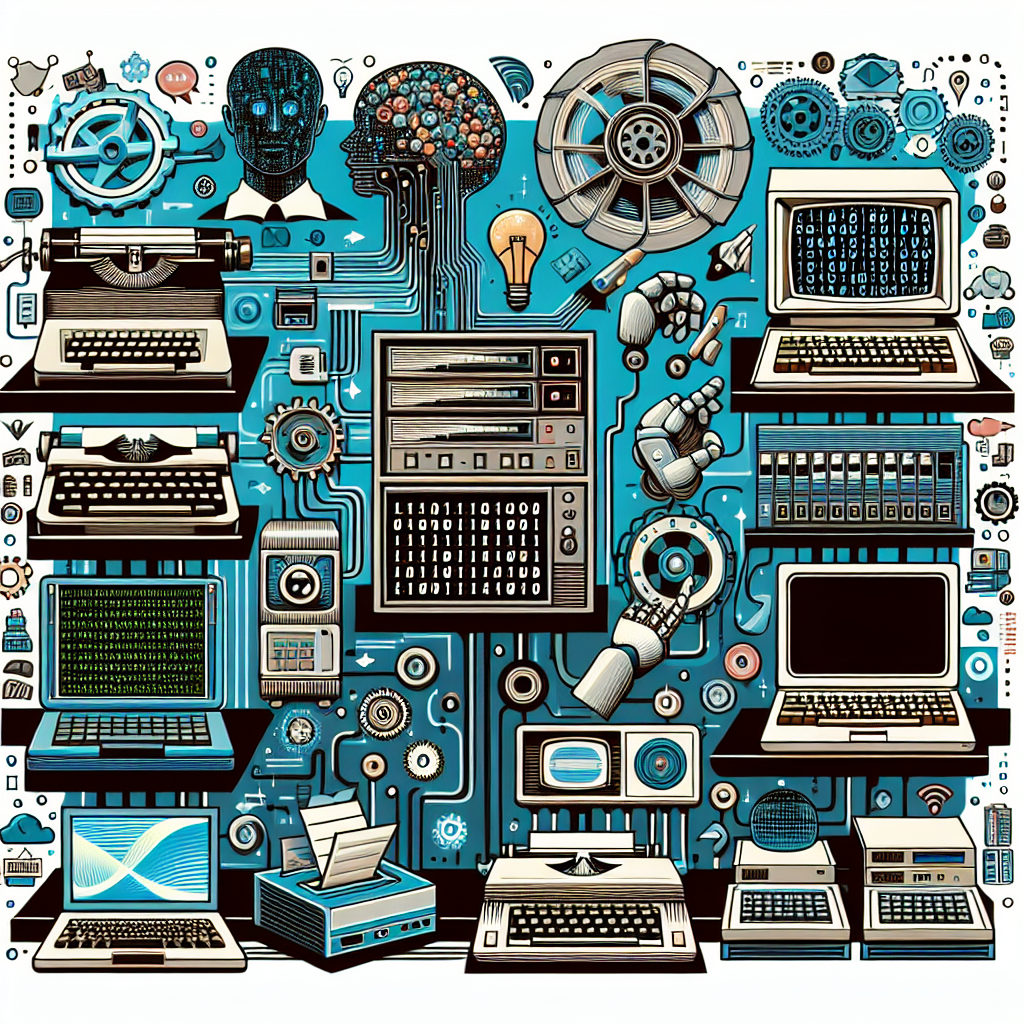In today’s digital age, AI (Artificial Intelligence) and machine learning are playing an increasingly important role in various aspects of our lives. From personalized recommendations on streaming platforms to self-driving cars, these technologies are revolutionizing the way we live, work, and interact with the world around us. In this article, we will explore the importance of AI and machine learning in the digital age, their applications, and how they are shaping the future of technology.
What is AI and Machine Learning?
Artificial Intelligence refers to the simulation of human intelligence processes by machines, such as learning, reasoning, and self-correction. Machine learning, on the other hand, is a subset of AI that enables machines to learn from data without being explicitly programmed. This allows machines to improve their performance on a task over time without human intervention.
The Importance of AI and Machine Learning in the Digital Age
1. Automation: One of the key benefits of AI and machine learning is automation. These technologies can perform repetitive tasks at a faster pace and with greater accuracy than humans. This frees up human workers to focus on more strategic and creative tasks, leading to increased productivity and efficiency in the workplace.
2. Personalization: AI and machine learning algorithms are used to analyze large amounts of data and provide personalized recommendations to users. This can be seen in streaming platforms like Netflix and Spotify, where algorithms suggest movies, music, and TV shows based on the user’s preferences and viewing history.
3. Healthcare: AI and machine learning are transforming the healthcare industry by enabling faster and more accurate diagnosis of diseases. These technologies can analyze medical images, such as X-rays and MRIs, to detect abnormalities and assist healthcare professionals in making informed decisions about patient care.
4. Cybersecurity: In an increasingly digital world, cybersecurity is of utmost importance. AI and machine learning algorithms can detect and prevent cyber attacks by analyzing patterns in network traffic and identifying potential threats in real-time. This helps organizations strengthen their security measures and protect their data from breaches.
5. Customer Service: AI-powered chatbots are being used by businesses to provide instant customer support and handle inquiries round the clock. These chatbots can understand natural language and provide relevant answers to customer queries, improving the overall customer experience.
6. Autonomous Vehicles: Self-driving cars are a prime example of how AI and machine learning are revolutionizing transportation. These vehicles use sensors and cameras to navigate roads, interpret traffic signals, and avoid obstacles, making driving safer and more efficient.
7. Financial Services: AI and machine learning algorithms are used in the financial industry to detect fraudulent activities, predict stock market trends, and automate trading processes. These technologies help financial institutions make data-driven decisions and mitigate risks.
FAQs
1. What are the differences between AI and machine learning?
AI is a broader concept that encompasses the simulation of human intelligence processes by machines, while machine learning is a subset of AI that focuses on enabling machines to learn from data without being explicitly programmed.
2. How are AI and machine learning being used in healthcare?
AI and machine learning algorithms are being used in healthcare to analyze medical images, diagnose diseases, predict patient outcomes, and assist in drug discovery. These technologies are helping healthcare professionals make more accurate and timely decisions about patient care.
3. How can businesses benefit from AI and machine learning?
Businesses can benefit from AI and machine learning by automating repetitive tasks, personalizing customer experiences, improving cybersecurity measures, enhancing decision-making processes, and gaining insights from large amounts of data. These technologies can help businesses increase efficiency, reduce costs, and stay competitive in the digital age.
4. Are there any ethical concerns associated with AI and machine learning?
There are ethical concerns associated with AI and machine learning, such as bias in algorithms, privacy issues, job displacement, and the potential misuse of AI-powered technologies. It is crucial for organizations to address these concerns and implement ethical guidelines to ensure the responsible use of these technologies.
In conclusion, AI and machine learning are transforming the way we live, work, and interact with technology in the digital age. These technologies are revolutionizing various industries, from healthcare and finance to transportation and customer service. As we continue to advance in the field of AI and machine learning, it is important to consider the ethical implications and ensure the responsible use of these technologies to benefit society as a whole.

